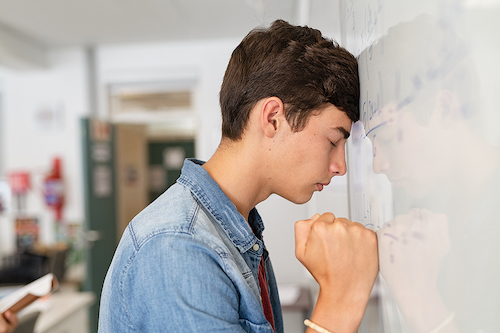 Cumulative exposure to trauma in childhood is a key indicator of suicide ideation in university students.
Cumulative exposure to trauma in childhood is a key indicator of suicide ideation in university students.
Researchers from Trinity College in Dublin found that adverse childhood experiences (ACEs) were a common cause of poor mental health in college students.
“Our findings suggest that ACEs have a detrimental impact on college students’ mental health and are quite common in college students,” Madhav Bhargav, a PhD Candidate and researcher in the School of Psychology at Trinity College Dublin told Theravive.
To undertake their study, the researchers used a cross-sectional survey of 321 college students, most of whom attended universities in Ireland.
Students were asked questions like “did an adult or parent in your household swear, insult, humiliate or put you down?”
They were also asked if they were ever afraid they might be physically hurt due to the actions of a parent or adult in their household.
Students were asked if their parents or step-parents would yell, argue or be angry at one another on a regular basis.
They were also asked if either their best friend, parent, brother or sister had experience a bad illness or accident in which they were in the hospital for an extended period.
The researchers found that adverse childhood experiences were common among students in college. 35.2% of those surveyed reported experiencing one to three adverse childhood experiences. 39.6% of those surveyed reported experience four to 12 adverse childhood experiences.
An adverse childhood experience is a negative event in an individual’s first 18 years of life. This can be due to high levels of dysfunction in the home, neglect, maltreatment, domestic violence, abuse or drug and alcohol addiction.
Numerous studies suggest there is a relationship between adverse childhood experience and suicidal behavior and suicidal thoughts.
Research has shown that suicidal phenomena is higher among those who have a history of adverse childhood experiences.
But Bhargav argues there is a poor undertaking of how adverse childhood experience can lead to suicidal ideation.
“To this date, there has been a lack of understanding in differentiating and identifying the suicidal phenomena of suicide ideation and testing their relationship with cumulative exposure to childhood adversities. This distinction is pivotal for both theoretical and practical reasons. And our research study adds to some important work done across the globe,” he said.
The researchers found that as well as a high level of adverse childhood experiences among those surveyed, there was also high levels of suicide ideation.
Some students reported feelings of having no solutions to their problems, feeling like a burden and planning or having an intent to die by suicide.
The research suggests that college students who have experienced trauma in their childhood may find their past has an impact on both their social and academic life when in college. They may also find the transition to college particularly challenging.
Understanding that trauma can influence the functioning of a student, the study authors argue, can create opportunities for offering support. But the authors also note that determining which students may have experienced childhood trauma must be done in a sensitive manner.
The authors note that not all college students who experienced adverse childhood events will have negative mental health consequences as a result of this.
They argue more research should be done to explore what risk factors might worsen the impact of adverse childhood experiences. This may include factors like a low socio-economic status.
They hope their findings will highlight how an awareness of previous adverse experiences among college students could help identify students in need of support. This may also encourage college campuses to address issues that impact all students, like loneliness or feelings of isolation.
“Within the college context, acknowledging that the experiences of loneliness and social isolation can be prevalent on college campuses and pushing efforts to respond to and negate their impact are key avenues of intervention worth pursuing that will benefit the student body at large,” Bhargav said.
Elizabeth Pratt is a medical journalist and producer. Her work has appeared on Healthline, The Huffington Post, Fox News, The Australian Broadcasting Corporation, The Sydney Morning Herald, News.com.au, Escape, The Cusp and Skyscanner. You can read more of her articles here. Or learn more about Elizabeth and contact her via her LinkedIn and Twitter profiles.